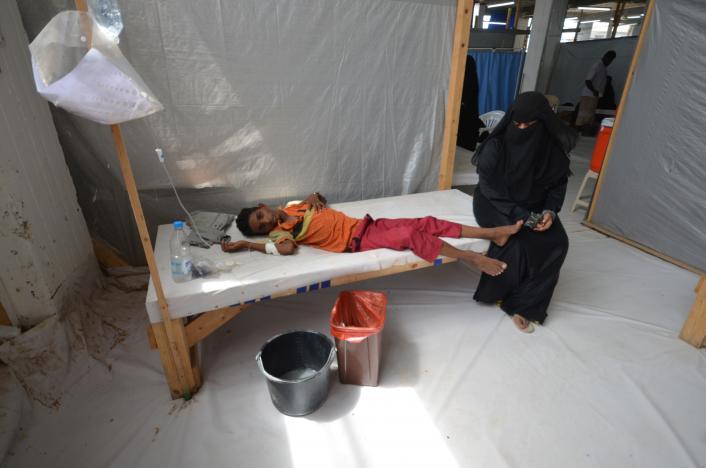Saudi President of Arab Gulf Development Program (AGFUND) Prince Talal Bin Abdulaziz has directed the executive board of the group to allocate $50,000 to relief works and health facilities established for curbing the spread of cholera in Yemen, Saudi Press Agency reported on Saturday.
In an effort to reign in the epidemic which is beyond catastrophic for the war-torn country, AGFUND’s donation will be transferred through the United Nations Children’s Fund (UNICEF).
AGFUND is a regional organization based in Riyadh, Saudi Arabia. AGFUND was established in 1980 with the support of leaders of the Gulf Cooperation Council Countries: United Arab Emirates, Bahrain, Saudi Arabia, Qatar, Oman and Kuwait.
Since its foundation, AGFUND has contributed to supporting and financing of over 1,400 projects in at least 100 developing countries. Until now, 952 projects have already been completed and 316 projects are under construction and implementation.
UNICEF is tasked with monitoring the deteriorating health situation in Yemen along with the World Health Organization, King Salman Center for Relief and Humanitarian Aid and Yemeni authorities.
Yemen could have as many as 300,000 cases of cholera within six months, the WHO had warned on Friday.
“We need to expect something that could go up to 200,000-250,000 cases over the next six months, in addition to the 50,000 cases that have already occurred,” WHO representative in the country, Nevio Zagaria, told Geneva reporters in a phone call.
The cholera outbreak in Yemen has killed 209 people in recent weeks with 17,200 suspected cases across the war-torn country, the UNICEF said Wednesday.
UNICEF’s Yemen mission said that there had been an “alarming increase” in cholera-related deaths.
Cholera is a highly contagious bacterial infection spread through contaminated food or water.
It is difficult to control the spread of disease in Yemen with the country being hostage of an ongoing two-year war between the Houthis and government forces which left more than half the country’s medical facilities out of service.
In 2014, Iran-aligned Houthi militias and armed loyalists backing Ali Abdullah Saleh staged a full-on coup, wreaking havoc nationwide. Since then, the internationally recognized government led by Abdrabbuh Mansur Hadi had joined forces with Arab and international parties in hopes of restoring peace and stability to Yemen.
